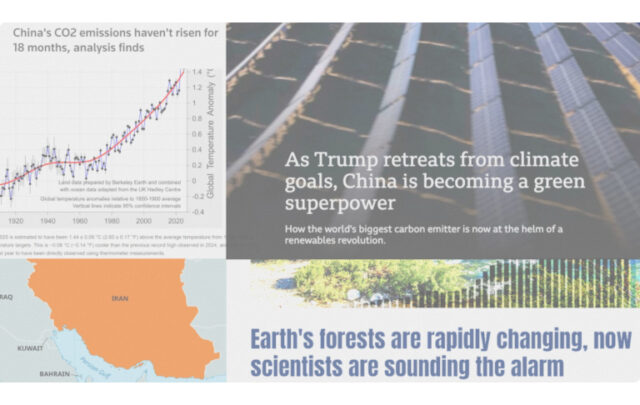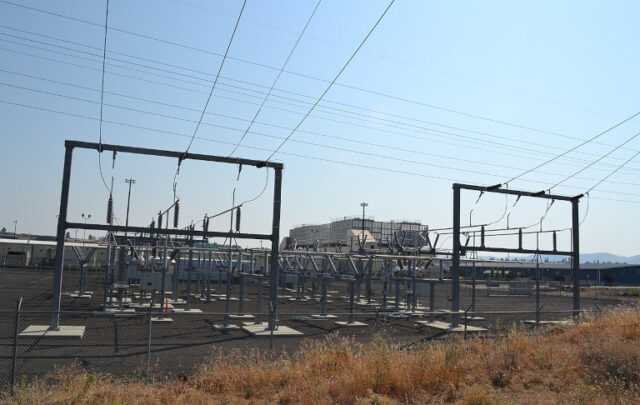Meet Nate Hagens
A good friend of mine said something to me the other day that I thought was profound. Nate Hagens is a former editor for The Oil Drum, and has written and lectured extensively on the risks of resource depletion. Nate holds a Master’s Degree in Finance from the University of Chicago and a PhD in Natural Resources from the University of Vermont. In his previous life Nate was a Vice President at the investment firms Salomon Brothers and Lehman Brothers.
Today Nate sits on the Board of Directors of Bottleneck Foundation, Post Carbon Institute, Institute for Study of Energy and Our Future, and Institute for Integrated Economic Research — and he farms in Wisconsin. He described his personal journey from Wall Street to Wisconsin in one of the last articles ever published on The Oil Drum: Twenty (Important) Concepts I Wasn’t Taught in Business School.
Fossil Fuel Subsidies
We were discussing the topic of fossil fuel subsidies on Facebook. The background is that two years ago I wrote an article for Forbes called The Surprising Reason That Oil Subsidies Persist: Even Liberals Love Them. The article is neither a defense of subsidies, nor a dig at liberals, but it became the most highly read article ever on Forbes Energy Source. Today the article still generates some rabid comments, often by people who obviously didn’t take the time to read much beyond the title before offering their opinion on the article. I had just responded to a recent comment and posted that comment to Facebook, and thus began the discussion.
The gist of the Forbes article is that the reason subsidies persist is that people don’t understand the sorts of things that are classified as subsidies. They think of them as cash payments from the government to oil companies. In reality, most are things like assistance for low income households so they don’t freeze to death in the winter.
Now I know this is not what most people have in mind when they say “Eliminate oil company subsidies” — but the fact is that there are all sorts of programs like this that are included in the various tabulations of fossil fuel subsidies. In fact, 87% of the “hundreds of billions of dollars in fossil fuel subsidies” targeted by the great “Twitter storm of 2012” and that activists like Bill McKibben decry when wearing one hat and defend when wearing another (see the breakdown here) are consumption subsidies that help people afford fuel.
There is no doubt that these are indeed subsidies, as these programs make it possible for fossil fuel companies to sell more product. But this isn’t an article about fossil fuel subsidies. I have written plenty of those. See the Forbes article above, or my article Getting Even With ExxonMobil for a more detailed discussion of subsidies.
 The Amount of Work in a Barrel of Oil
The Amount of Work in a Barrel of Oil
But as we were having the discussion, what Nate wrote that I thought was profound was “The subsidies we give fossil energy companies are a rounding error relative to the subsidies fossil energy give to society.”
Don’t misunderstand what he is saying. I know Nate, and we have had numerous discussions on this topic. He isn’t saying that fossil fuels are a wonderful gift to be celebrated. Like me, he has lectured and written plenty on the dangers of building a society on the basis of depleting resources. He is saying, rather, that the subsidy that fossil fuel gave to society was allowing us to overextend and overpopulate. This subsidy has enabled huge numbers of people to enjoy a standard of living that was out of the reach of even royalty 100 years ago. And we very much take all of these things for granted, and we don’t recognize how badly this story could end once these finite fossil fuel reserves — in particular oil because it will be the hardest to replace — head down the back side of the depletion curve.
I believe that Nate was the first person I saw describe oil in terms of equivalent human labor. A barrel of oil has an energy content of about 5.8 million British thermal units (Btu). A trained athlete can output about 750 Btu/hr of work over a period of several hours (Source). Thus, 1 barrel of oil has the energy content of 7,733 hours of labor by a trained athlete. At an average US hourly wage, that would equate to $188,000 worth of labor for a $100 barrel of oil. That is the subsidy Nate meant. We are greatly subsidizing our human labor with the ancient energy of fossil fuels to drive productivity and create wealth.
Or, in Nate’s words “Cheap energy, not technology, has been the main driver of wealth and productivity” and “Energy is almost everything.” (For more on this theme, see Nate’s article Complaining about mosquito bites while a crocodile bites our leg).
An Environmentalist’s Epiphany
Most of us never take time to look around and realize how much easier our lives have become as a result of fossil fuels. Author Amanda Little describes her own energy epiphany in her book Power Trip: The Story of America’s Love Affair with Energy . Little calls herself as an environmentalist who had “one major blind spot” in her understanding of energy:
. Little calls herself as an environmentalist who had “one major blind spot” in her understanding of energy:
“There was virtually nothing in my office—my body included—that wasn’t there because of fossil fuels… I had understood this intellectually before—that the energy landscape encompasses not just our endless acres of oil fields, coal mines, gas stations, and highways…. What I hadn’t fully managed to grasp was the intimate and invisible omnipresence of fossil fuels in my own life…. I also realized that this thing I thought was a four-letter word (oil) was actually the source of many creature comforts I use and love—and many survival tools I need. It seemed almost miraculous. Never had I so fully grasped the immense versatility of fossil fuels on a personal level and their greater relevance in the economy at large.”
Many environmentalists never seem to have this epiphany. Amanda Little would readily admit that her “blind spot” made her naive prior to writing a book about energy. I think if more people tried to live a brief period of time without any products derived from oil, they might still view oil as a “four-letter word”, but they would also understand why it is extremely critical to manage our transition away from oil. And they might better understand why I think many environmentalists are naive in their quest to hastily shut down all of our fossil fuel production, or to make an extremely rapid transition to renewables. I submit that they can’t begin to envision what that world would look like.
The Price of Dependence
Of course neither Amanda Little, nor Nate, nor myself fail to acknowledge the price we pay and the risks we are taking by growing our dependence on depleting resources. Another friend of mine named Hannes Kunz told me a story a few years ago that also illustrates this point well.
Once a truck carrying a load of nuts crashed into a tree. A family of squirrels living in the tree discovered this new resource and began to live the high life on the nuts they had just found. But as their population grew, so did their demand for nuts.
But that truck crash was a one-time event, and the squirrels were depleting their nut windfall as their population grew, and they were making a mess by leaving their discarded nut shells everywhere. The squirrels failed to adequately plan for the day that there were no longer enough nuts to feed everyone. Recently, they were able to frack open a hidden compartment in the truck to find a few more nuts, but being squirrels they failed to use this brief reprieve to plan for a future without as many available nuts.
Conclusions
Sometimes people get a distorted view of my position on fossil fuels. They believe that because I am very aware of their role in our modern lives, that I believe we should continue to grow their consumption. That’s not it. I am aware that we will continue to need them for years to come, because society would collapse if they are rapidly removed (either by policy changes or by geology). Thus, I am aware of their current importance to modern society. So my position is that we don’t have the luxury of opposing all fossil fuel projects unless we want to see lots of people starve to death, or at a minimum face energy prices that are unaffordable. I would argue that the impacts of having our fossil fuel supplies drastically cut would be far swifter and far more severe than the climate change impacts if we manage a slower transition.
At the same time, we need to do everything in our power to manage demand, but more importantly to bring new energy supplies online that are more sustainable than what we have. This won’t happen overnight, but needs to be done with a sense of urgency. Even then it’s unlikely that we can replace the energy content of 90 million barrels of oil, but the closer we come to meeting this, the better off we will all be in the long run.
Ultimately that’s a position that sooner or later alienates people on both sides of the political spectrum. On that note, I will close with one more thing Nate said to me: “Truth is a path with fewer friends.”
Velocipede image via Wikimedia.























